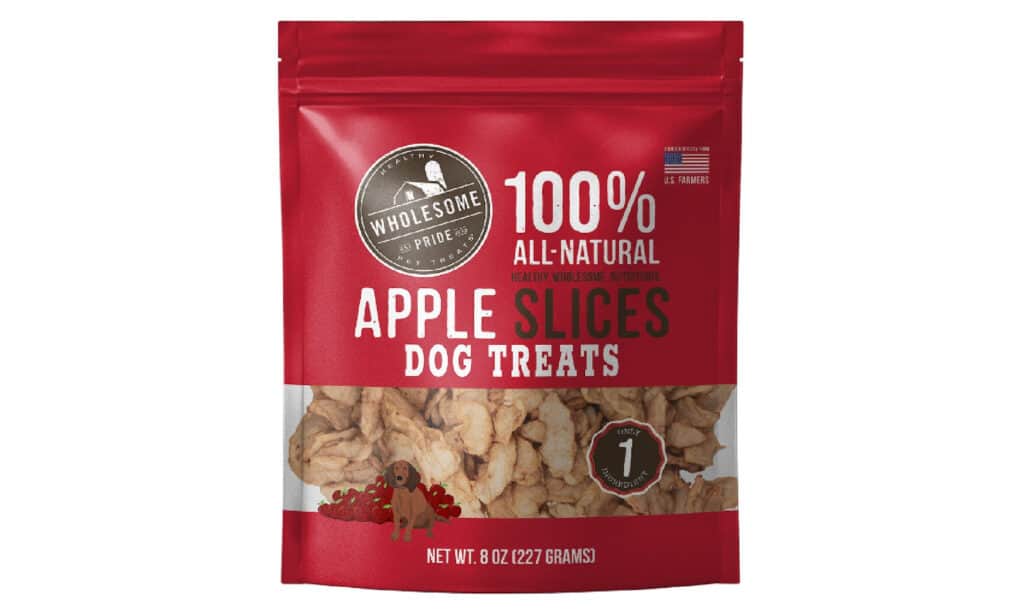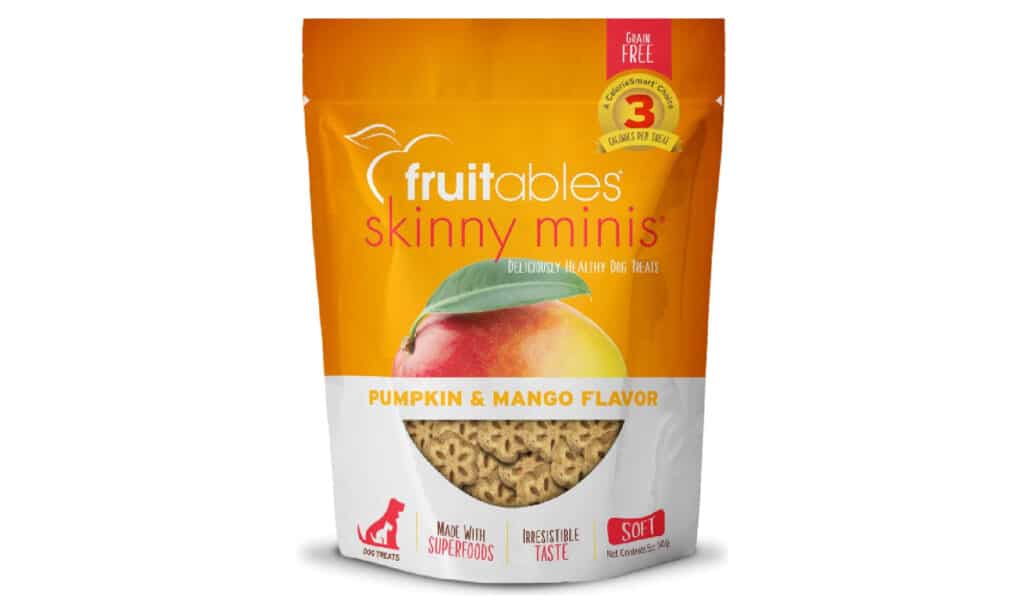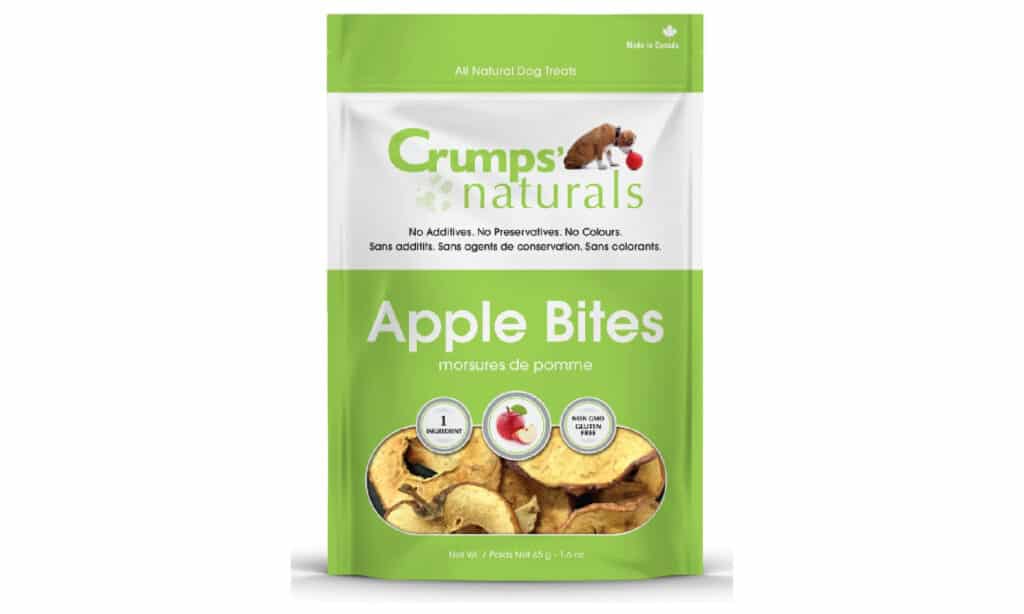As a dog owner, you want to ensure that your furry friend is getting the best nutrition possible. You may be wondering if it’s safe to share some of your favorite human foods with them, such as bok choy. Bok choy is a type of leafy green vegetable that is commonly used in Asian cuisine and is known for its high nutrient content. While it may be safe for humans to consume, you may be curious whether it’s safe for your pup. In this blog, we will dive into the question of whether dogs can eat bok choy and explore its potential health benefits and risks. So, let’s get started and find out if bok choy is a safe and healthy addition to your dog’s diet!
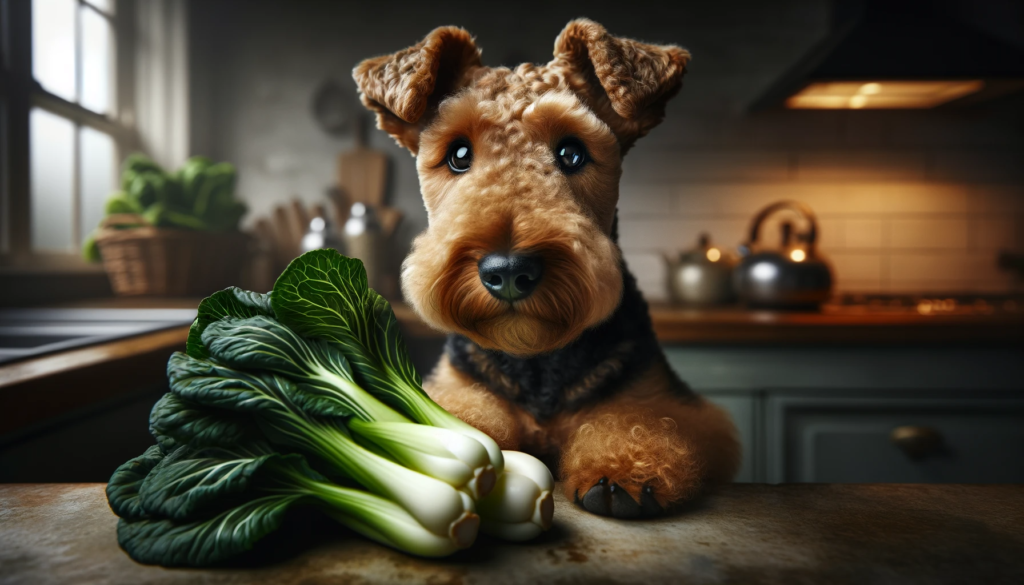
What Is Bok Choy?
Have you ever been to an Asian restaurant and wondered what that beautiful vegetable is with the spoon-shaped leaves and white stalks? Well, wonder no more, because that’s bok choy! Not only is it aesthetically pleasing, but it’s also packed with nutrients. This low-calorie vegetable is full of vitamins and minerals, making it a great addition to any diet.
But the best part about bok choy? It’s incredibly versatile! You can cook it in so many ways – from stir-frying to steaming, boiling, and even roasting. It’s used in countless dishes like soups, stews, salads, and entrees.
Now, let’s talk about the flavor. Bok choy has a unique taste that’s both slightly sweet and slightly bitter. And the texture? Crunchy and refreshing! It’s no wonder bok choy is used in so many different cuisines around the world. It’s not only delicious but also incredibly nutritious. So go ahead, add some bok choy to your plate and enjoy all the health benefits it has to offer!
Can Dogs Eat Bok Choy?
As a dog owner, you always want to ensure that your furry friend is consuming a well-balanced and nutritious diet. You may be wondering whether bok choy is a safe addition to your dog’s diet. While bok choy is a nutrient-dense vegetable for humans, the question of whether it’s safe for dogs to eat requires further investigation.
The good news is that bok choy is not toxic to dogs and is generally safe to feed to them. In fact, it can be a healthy addition to their diet as it’s low in calories, high in fiber, and contains a range of vitamins and minerals. However, it’s important to note that dogs have different nutritional requirements than humans. Too much of any food, including bok choy, can upset your dog’s stomach and potentially cause health issues.
As with any new food you introduce to your dog’s diet, it’s important to start small and monitor their reaction. If your dog shows any signs of gastrointestinal distress, such as vomiting or diarrhea, discontinue feeding them bok choy and consult with your veterinarian.
In summary, bok choy is not toxic to dogs and can be a healthy addition to their diet in moderation. As with any new food, it’s important to introduce it gradually and observe your dog’s reaction. As always, consult with your veterinarian before making any significant changes to your dog’s diet.
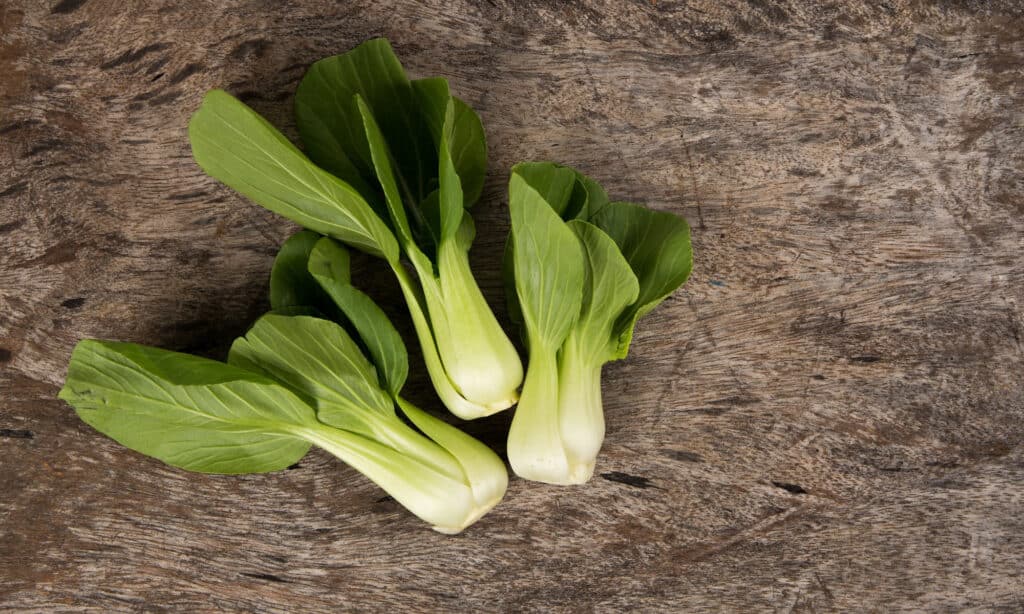
Are There Any Harmful Ingredients in Bok Choy?
When it comes to feeding our furry friends, it’s important to be mindful of the ingredients we’re giving them. While bok choy is generally considered safe for dogs to eat, there are a few things to keep in mind.
Firstly, bok choy contains a compound called thiocyanate, which can interfere with iodine absorption in the body. Iodine is essential for thyroid function, so if your dog already has thyroid issues, it’s best to avoid feeding them large amounts of bok choy. However, small amounts are generally considered safe.
Additionally, bok choy belongs to the cruciferous vegetable family, which also includes broccoli and cauliflower. These vegetables contain compounds called goitrogens, which can also interfere with thyroid function. However, the levels of goitrogens in bok choy are relatively low, and it’s unlikely to cause any issues in healthy dogs.
It’s also important to note that bok choy, like many vegetables, contains a small amount of oxalates. In high amounts, oxalates can contribute to the formation of kidney stones. However, the levels of oxalates in bok choy are considered low, and it’s not likely to cause any issues unless your dog already has a history of kidney problems.
Overall, bok choy is a healthy vegetable that’s safe for dogs to eat in moderation. However, as with any new food, it’s important to introduce it gradually and monitor your dog’s reaction. If you have any concerns about feeding your dog bok choy, be sure to consult with your
Are There Any Safe Ingredients in Bok Choy?
Yes, bok choy is a nutrient-dense vegetable that can be a healthy addition to your dog’s diet when fed in moderation. Here are some of the safe ingredients in bok choy that can benefit your furry friend:
- Vitamins and minerals: Bok choy is packed with essential vitamins and minerals such as vitamin C, vitamin K, calcium, and potassium, all of which can support your dog’s overall health.
- Fiber: Bok choy is a good source of dietary fiber, which can aid in digestion and promote bowel regularity.
- Antioxidants: Bok choy is rich in antioxidants, which can help protect your dog’s cells from damage caused by free radicals and reduce the risk of chronic diseases.
- Water: Bok choy has a high water content, which can help keep your dog hydrated and support their urinary tract health.
When feeding bok choy to your dog, it’s important to avoid any seasonings or sauces that may contain harmful ingredients, such as garlic or onion. Stick to plain, cooked bok choy and avoid feeding your dog large amounts at once. As with any new food, it’s also important to start with small amounts and monitor your dog’s reaction. If your dog experiences any digestive upset or other adverse effects, stop feeding them bok choy and consult with your veterinarian.
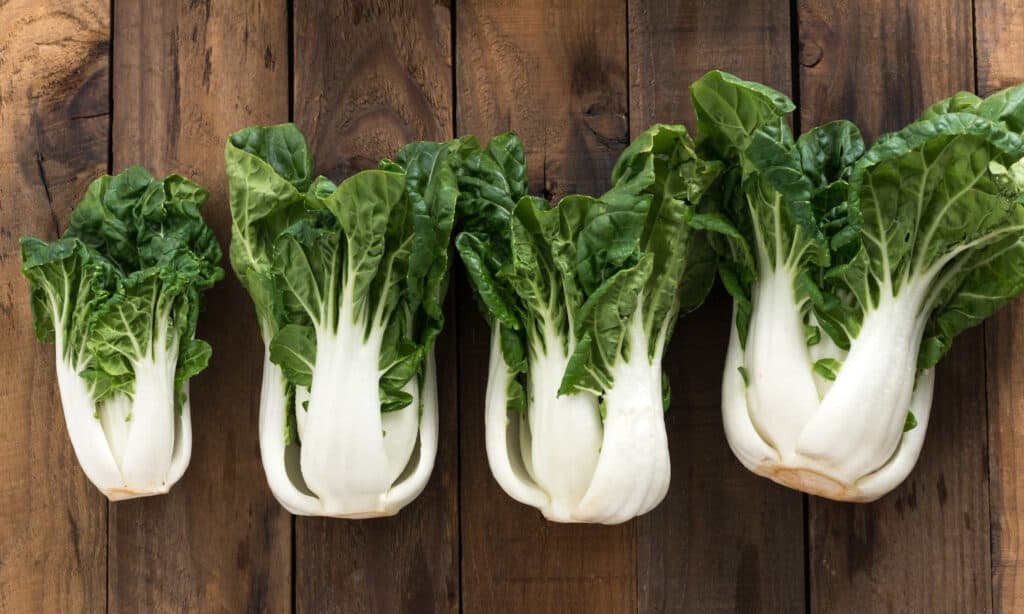
What Signs To Watch For If Your Dog Accidentally Ate A Lot of Bok Choy?
While bok choy is generally considered safe for dogs, consuming large amounts of it can lead to gastrointestinal upset. If your dog has accidentally eaten a lot of bok choy, here are some signs to watch out for:
- Vomiting: If your dog has consumed a large amount of bok choy, they may vomit to try to rid their body of the excess food.
- Diarrhea: Bok choy contains fiber, which can be difficult for some dogs to digest in large amounts. This can lead to diarrhea and loose stools.
- Abdominal pain: Eating a lot of bok choy can cause your dog’s stomach to become distended, leading to abdominal discomfort.
- Lethargy: If your dog is experiencing digestive upset, they may feel lethargic and have a decreased appetite.
- Dehydration: Diarrhea and vomiting can lead to dehydration, which can be dangerous for dogs. Be sure to offer your dog plenty of water and consult with your veterinarian if you notice any signs of dehydration.
If your dog is showing any of these signs after eating a lot of bok choy, it’s important to monitor them closely and contact your veterinarian if their symptoms persist or worsen. In most cases, the symptoms of bok choy consumption in dogs are mild and will resolve on their own with time. However, it’s always better to err on the side of caution and seek medical advice if you have any concerns about your dog’s health.
When or If You Should Go To The Vet?
If your dog has accidentally eaten a large amount of bok choy and is experiencing any signs of gastrointestinal upset, it’s important to monitor them closely. In most cases, the symptoms will resolve on their own within 24-48 hours. However, there are certain situations where you should consider taking your dog to the vet:
- Severe symptoms: If your dog is vomiting excessively, has severe diarrhea, or is experiencing severe abdominal pain, it’s important to seek medical attention. These symptoms can lead to dehydration and other complications.
- Prolonged symptoms: If your dog’s symptoms persist for more than 24-48 hours, it’s important to seek medical attention. Prolonged gastrointestinal upset can lead to other health issues and may require medical intervention.
- Underlying health issues: If your dog has a pre-existing health condition, such as kidney disease or thyroid issues, it’s important to consult with your veterinarian before feeding them bok choy. They may be more susceptible to the potential negative effects of thiocyanate and goitrogens found in bok choy.
- Emergency situations: If your dog is experiencing any symptoms that indicate an emergency, such as difficulty breathing or severe lethargy, seek immediate veterinary attention.
In summary, if your dog has eaten a large amount of bok choy and is experiencing mild gastrointestinal upset, you can monitor them closely at home. However, if their symptoms are severe or persist for more than 24-48 hours, or if your dog has a pre-existing health condition, it’s important to seek medical attention. As always, it’s better to be safe than sorry when it comes to your dog’s health.
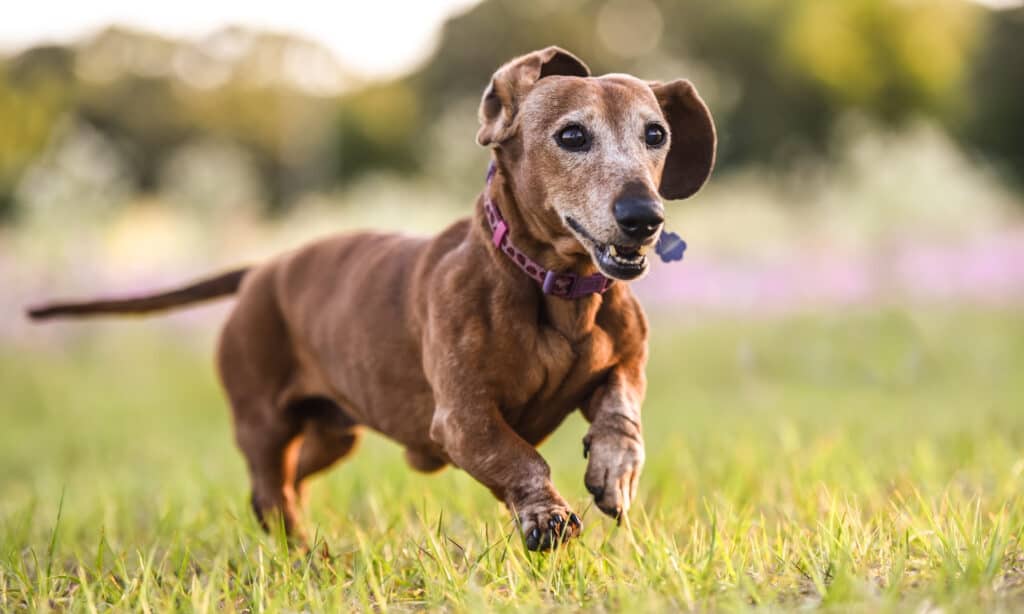
Safe Dog-Friendly Alternative to Bok Choy:
If you’re looking for a safe and healthy alternative to bok choy to feed your furry friend, there are many dog-friendly vegetables to choose from. Here are a few options:
- Green beans: Green beans are low in calories and high in fiber, making them a great addition to your dog’s diet. They’re also a good source of vitamins and minerals.
- Carrots: Carrots are a great source of beta-carotene, which can support your dog’s eye health. They’re also low in calories and high in fiber.
- Broccoli: Broccoli is another cruciferous vegetable that’s safe for dogs to eat in moderation. It’s packed with vitamins and minerals, and the fiber can aid in digestion.
- Sweet potatoes: Sweet potatoes are a great source of dietary fiber and vitamins A and C. They’re also low in fat and calories.
When feeding your dog any new vegetable, it’s important to introduce it gradually and monitor their reaction. Be sure to wash and cook the vegetables thoroughly before feeding them to your dog. And as always, consult with your veterinarian before making any significant changes to your dog’s diet. With a little experimentation, you’re sure to find a dog-friendly vegetable that your furry friend will love!
Healthy Store-Bought Options:
In conclusion, bok choy is a safe and nutritious vegetable for dogs when fed in moderation. While it contains compounds that can interfere with thyroid function in large amounts, bok choy is generally considered safe for healthy dogs to eat. However, as with any new food, it’s important to introduce it gradually and monitor your dog’s reaction.
If you’re unsure about feeding your dog bok choy, there are many other safe and healthy vegetables to choose from, including green beans, carrots, broccoli, and sweet potatoes. These vegetables are packed with essential vitamins and minerals and can be a great addition to your dog’s diet.
Remember, the key to keeping your furry friend healthy is to provide them with a well-balanced diet and plenty of exercise. As always, consult with your veterinarian before making any significant changes to your dog’s diet, and be sure to monitor their reaction to any new foods you introduce. By taking these steps, you can help ensure that your dog stays healthy and happy for years to come.
~ Lindsie

